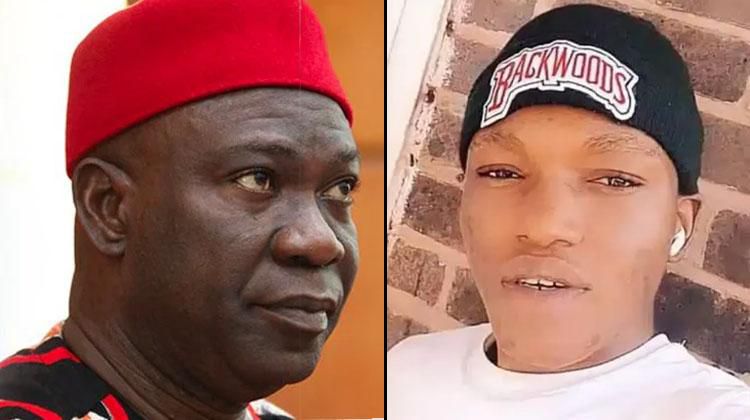Nigerian DJ sold his kidney in Egypt to buy second-hand laptop - UK journalist
)
Mark Lobel, a freelance journalist from the United Kingdom, has narrated how an unnamed Nigerian disc jockey sold his organ in Egypt to raise money to upgrade his laptop.
Lobel, a former BBC Nigeria correspondent, disclosed this in a documentary on Nigerian former lawmaker Senator Ike Ekweremadu.
The documentary, titled 'How Sen Ekweremadu was arrested in London for organ harvesting' and produced by a Nigerian seasoned journalist Chude Jideonwo, revealed some background details of events leading to the Ekweremadus ordeal.
Recall that the former Deputy Senate President, alongside his wife, Beatrice and a medical doctor, Obinna Obetta, was sentenced in the UK last year for organ trafficking involving a Nigerian male victim.
The trio were found guilty of conspiring to arrange the travel of the 21-year-old young man to exploit him for his body part, his kidney to be precise.

UK journalist shocked by Nigerian experience
Following their sentencing, which reverberated around the UK as the convicts were the first Africans to be nailed under the United Kingdom’s Modern Slavery Act, Lobe decided to dig deeper into the story and journeyed down to Nigeria to extract first-hand information.
However, the freelance journalist unearthed some shocking revelations which exposed the desperation of some Nigerians and the risks they put themselves through in their quest to make money.
"I was shocked by what I found in Nigeria and shocked by how the country has changed over the past ten years. And I was shocked by what some people were prepared to do for their kidneys, particularly one person I met there," he said.

UK journalist shocked by organ trade by Nigerians
Lobe recalled his interaction with a computer merchant in Nigeria, whose customer had travelled to Egypt to sell his kidney to raise money to better his life.
"We actually met the gentleman who owned the computer store and he was selling second-hand computers and someone had come up to him to explain that the money that he was going to give him for a laptop so that he could become a DJ and stop the manual work that he was doing, had come from the fact that he had sold his kidney.
"He had gone on an organised trip to Egypt to sell his kidney, and he was going to use that money to get himself a better life. But the risks he had been taking to do that and the aftercare that he needed, and it sounded like he wasn't getting, was shocking," he stated.
The freelance journalist said he was concerned about the health of the 'organ trader' who required an expensive and complicated aftercare but seemed not to have the means to access it.
"One of the things that struck me was the man who ran the shop said this guy came to him and he did not look well and you know one fears that the aftercare, which is very expensive and it's very complicated wouldn't be happening. Where would he have got the money for the aftercare? Who would have been looking after him?
"If the operation had taken place in Egypt, why would he have come back and got help in Nigeria? So many questions. It's illegal for a reason," Lobe added.
)
![Aisha blows hot on Security forces; Y7ou won't believe what she said [VIDEO]](https://image.api.sportal365.com/process/smp-images-production/pulse.ng/17082024/1f976edf-1ee2-4644-8ba1-7b52359e1a8f?operations=autocrop(640:427))
)
)
)
![Lagos state Governor, Babajide Sanwo-Olu visited the Infectious Disease Hospital in Yaba where the Coronavirus index patient is being managed. [Twitter/@jidesanwoolu]](https://image.api.sportal365.com/process/smp-images-production/pulse.ng/16082024/377b73a6-190e-4c77-b687-ca4cb1ee7489?operations=autocrop(236:157))
)
)
)
)
)
)
)
)
)
)
)